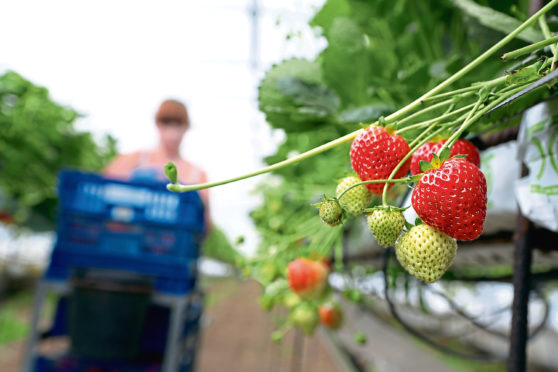An influential House of Commons committee has demanded the Home Office take action to help Scottish farms trying to recruit seasonal agricultural workers.
The Scottish Affairs Committee has sent a letter to Immigration Minister Caroline Nokes after farming leaders told of visa delays to bring non-EU workers to the UK as part of a pilot scheme.
The committee heard that there was a risk that Scottish agricultural produce might be left to rot as workers from Ukraine and Moldova face expensive and drawn out visa processes.
The Home Office has committed to a three-week turnaround, but the committee heard that some visas are taking over 30 days to process.
The operators stated that this delay was partially due to workers finding it difficult to book appointments at the UK visa offices, with the visa office in Moldova only open two days a week.
SNP MP Pete Wishart, who chairs the committee, said: “The government’s pilot scheme was intended to alleviate labour shortages during peak production periods, but if these visa delays continue there is a risk that Scottish farmers will be left high and dry without any support during harvesting season.
“My committee was told there is a risk that workers simply won’t be on the ground in time – for example in my constituency upwards of 40 workers are needed from next week to pick strawberries and we were told in no uncertain terms that they will not be there in time.
“The government needs to do everything it can to support the pilot scheme and ensure that Scottish farmers do not have to face rotting produce because of bureaucratic delays.”
Scottish farms employ around 10,000 non-UK nationals in seasonal positions in the soft fruit and vegetable sectors each year.
However, some growers have reported a 10-20% reduction in this workforce in recent years which has led to decreased production and rotting produce.
Stephanie Maurel, chief executive of Concordia – one of the organisations responsible for rolling out the pilot seasonal workers scheme – told the committee that the sector’s labour shortages will likely get worse this year.
